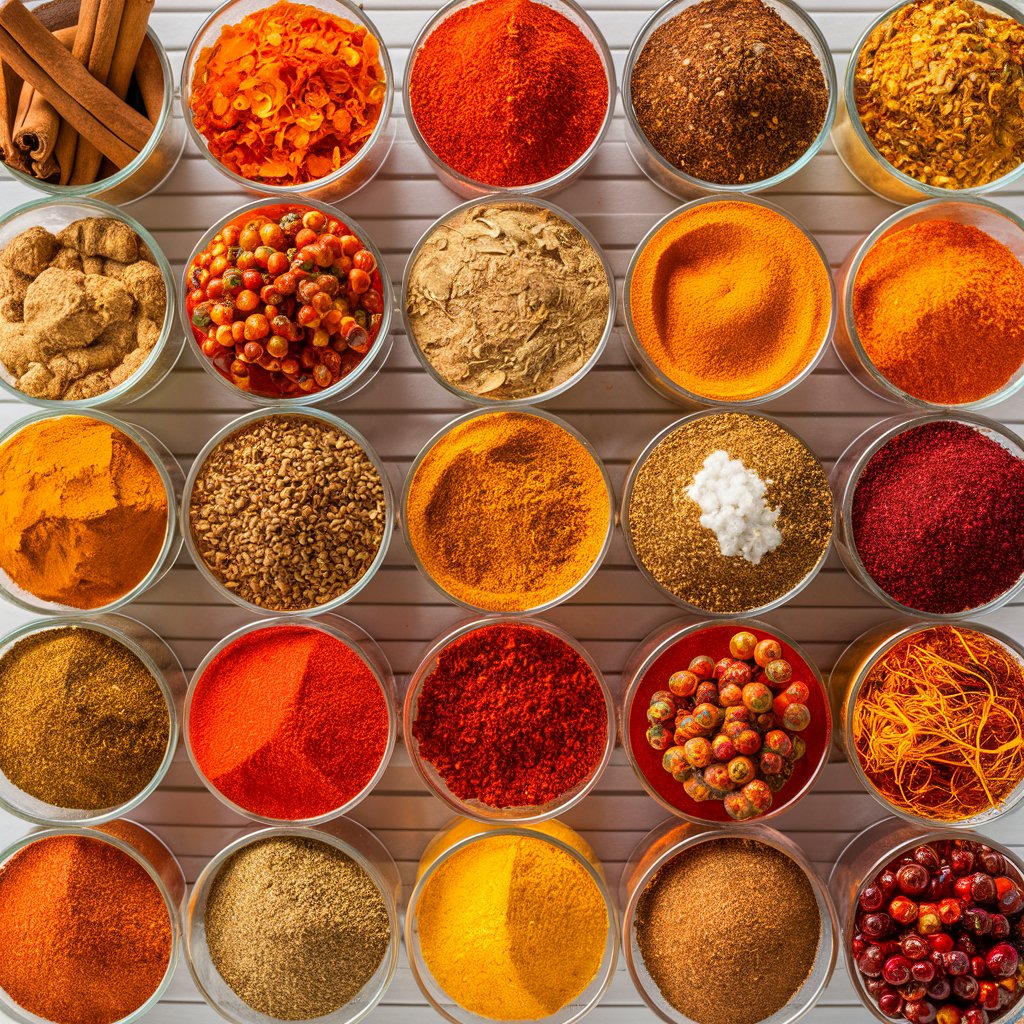

- Introduction
- The Historical Significance of Spices
- Spices in Ancient Civilizations
- Spices in Trade and Economy
- Commonly Used Spices and Their Benefits
- Turmeric
- Health Benefits of Turmeric
- Culinary Uses of Turmeric
- Cinnamon
- Health Benefits of Cinnamon
- Culinary Uses of Cinnamon
- Black Pepper
- Health Benefits of Black Pepper
- Culinary Uses of Black Pepper
- Cardamom
- Health Benefits of Cardamom
- Culinary Uses of Cardamom
- Cumin
- Health Benefits of Cumin
- Culinary Uses of Cumin
- Turmeric
- Exotic Spices and Their Unique Qualities
- Saffron
- Health Benefits of Saffron
- Culinary Uses of Saffron
- Star Anise
- Health Benefits of Star Anise
- Culinary Uses of Star Anise
- Saffron
- Spices in Global Cuisines
- Indian Cuisine
- Middle Eastern Cuisine
- Asian Cuisine
- European Cuisine
- The Role of Spices in Traditional Medicine
- Ayurveda
- Traditional Chinese Medicine
- Growing and Harvesting Spices
- Climate and Soil Requirements
- Harvesting Techniques
- Storing and Preserving Spices
- Best Practices for Storage
- Shelf Life of Common Spices
- Finding Quality Spices
- Best Online Spice Store
- Best Place to Buy Spices
- Wholesale Spices Suppliers
- Best Spice Websites
- Conclusion
- FAQs
Introduction
Spices have been an integral part of human civilization for thousands of years. From ancient times to the modern kitchen, they have added flavor, aroma, and even medicinal properties to our lives. This article delves into the fascinating world of spices, exploring their historical significance, health benefits, culinary uses, and much more. You’ll also find valuable information on where to buy the best spices, including vanilla beans for sale and the best online spice store options.
The Historical Significance of Spices
Spices in Ancient Civilizations
Spices have played a crucial role in ancient civilizations, serving not only as flavor enhancers but also as preservatives, medicines, and even currency. The Egyptians used spices like cumin and coriander in their embalming processes, while the Greeks and Romans cherished them for their therapeutic properties.
Spices in Trade and Economy
The spice trade routes connected various parts of the world, fostering cultural exchanges and economic growth. Spices like black pepper and cinnamon were so valuable that they were often worth their weight in gold, driving explorers to discover new lands and trade routes.
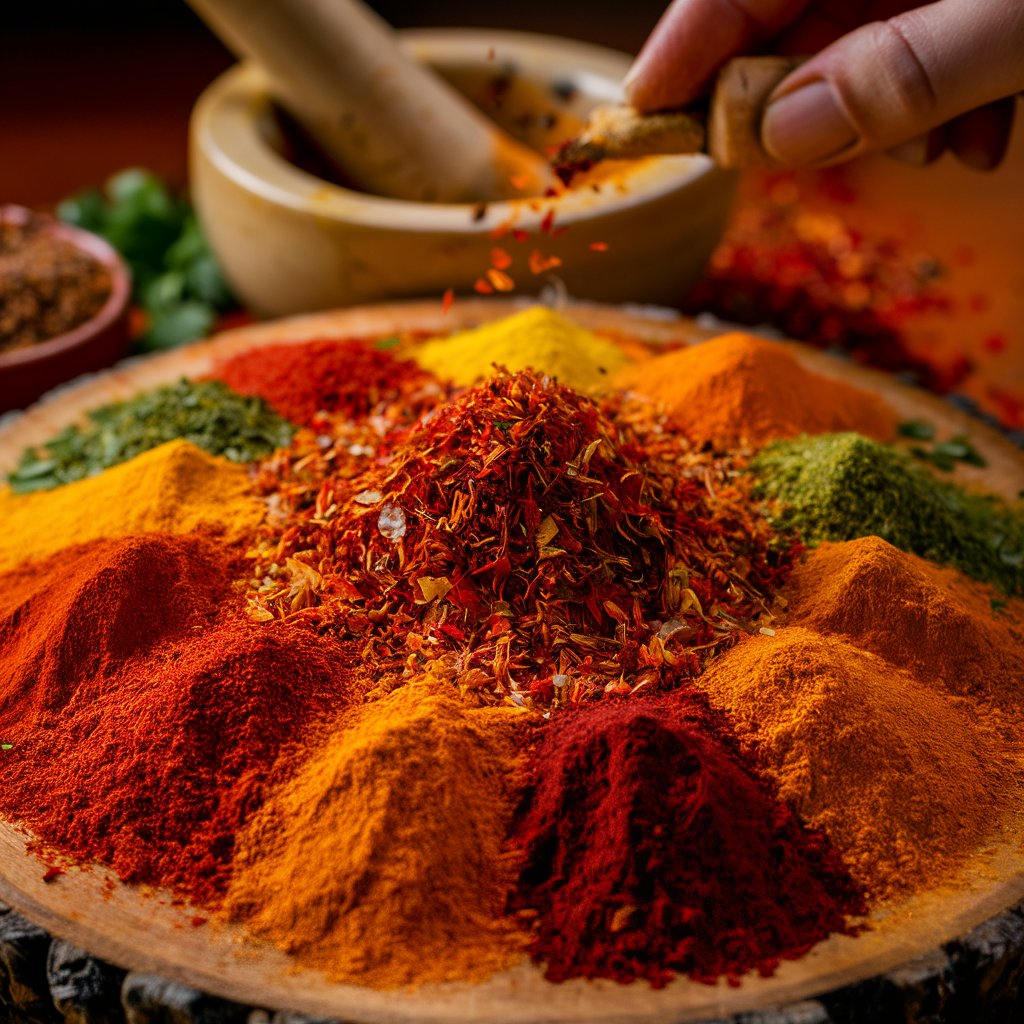
Commonly Used Spices and Their Benefits
Turmeric
Health Benefits of Turmeric
Turmeric, with its active compound curcumin, is known for its anti-inflammatory and antioxidant properties. It is often used to treat conditions like arthritis, digestive disorders, and even as a preventive measure against certain cancers.
Culinary Uses of Turmeric
In the kitchen, turmeric is a staple in many Indian dishes, imparting a vibrant yellow color and earthy flavor to curries, soups, and rice dishes.
Cinnamon
Health Benefits of Cinnamon
Cinnamon is prized for its ability to regulate blood sugar levels, making it beneficial for people with diabetes. It also has anti-inflammatory, antioxidant, and antimicrobial properties.
Culinary Uses of Cinnamon
This sweet spice is commonly used in baking, adding warmth to pastries, cookies, and breads. It’s also a key ingredient in savory dishes like Moroccan tagines and Indian biryanis. There are different types of cinnamon, including Ceylon and Cassia, each with its unique flavor profile.
Black Pepper
Health Benefits of Black Pepper
Black pepper is more than just a seasoning; it’s known for its ability to enhance digestion and support weight loss. Its active compound, piperine, helps in the absorption of nutrients and has anti-inflammatory properties.
Culinary Uses of Black Pepper
As one of the most commonly used spices worldwide, black pepper adds heat and depth to both savory and sweet dishes. It’s a staple in seasoning blends and marinades.
Cardamom
Health Benefits of Cardamom
Cardamom is known for its digestive benefits, helping to alleviate bloating and gas. It also has antibacterial properties and is used in traditional medicine to treat respiratory conditions.
Culinary Uses of Cardamom
With its sweet and spicy flavor, cardamom is used in both sweet and savory dishes. It’s a key ingredient in chai tea and is often added to baked goods and curries. There are two main types: black cardamom and green cardamom, each with distinct flavors and uses.
Cumin
Health Benefits of Cumin
Cumin is rich in iron and has been shown to aid in digestion and boost the immune system. It’s also used in traditional medicine to treat a variety of ailments, from respiratory issues to skin conditions.
Culinary Uses of Cumin
This spice is essential in many cuisines, including Indian, Middle Eastern, and Mexican. It adds a warm, earthy flavor to dishes like chili, stews, and spice blends.
Exotic Spices and Their Unique Qualities
Saffron
Health Benefits of Saffron
Saffron is known for its antioxidant properties and is used to improve mood and alleviate symptoms of depression. It also has potential anti-cancer properties and is used to treat PMS and other conditions.
Culinary Uses of Saffron
The most expensive spice in the world, saffron adds a distinctive golden hue and unique flavor to dishes like paella, risotto, and Persian rice.
Star Anise
Health Benefits of Star Anise
Star anise is known for its antibacterial and antifungal properties. It is often used to treat respiratory infections, flu, and other ailments.
Culinary Uses of Star Anise
With its licorice-like flavor, star anise is a key ingredient in Chinese five-spice powder and is used in many Asian dishes, including soups and braised meats.
Spices in Global Cuisines
Indian Cuisine
Indian cuisine is known for its complex spice blends, including garam masala and curry powder. Spices like turmeric, cumin, coriander, and cardamom are essential to creating the rich flavors of Indian dishes. If you’re looking to buy Indian spices online, there are numerous options to explore.
Middle Eastern Cuisine
Middle Eastern cuisine relies heavily on spices such as cumin, coriander, cinnamon, and saffron. These spices are used to flavor everything from meat dishes to desserts.
Asian Cuisine
Asian cuisine, particularly Chinese, Thai, and Vietnamese, uses a variety of spices like ginger, garlic, star anise, and chili peppers to create bold and aromatic flavors.
European Cuisine
European cuisine, especially Mediterranean, uses spices like basil, oregano, and rosemary. These herbs and spices add depth and complexity to dishes ranging from pasta sauces to roasted meats.
The Role of Spices in Traditional Medicine
Ayurveda
In Ayurveda, spices are used for their medicinal properties to balance the body’s doshas (energies). Turmeric, ginger, and cumin are commonly used to promote digestion, reduce inflammation, and enhance overall health.
Traditional Chinese Medicine
Traditional Chinese Medicine (TCM) also utilizes spices for their healing properties. Ginger, cinnamon, and star anise are used to treat various ailments, from digestive issues to colds and flu.
Growing and Harvesting Spices
Climate and Soil Requirements
Different spices require specific climate and soil conditions to thrive. For instance, black pepper grows best in tropical climates, while saffron requires dry, arid conditions.
Harvesting Techniques
Harvesting spices involves careful timing to ensure maximum flavor and potency. For example, saffron threads are harvested by hand at dawn, while black peppercorns are picked just before they fully ripen.
Storing and Preserving Spices
Best Practices for Storage
To maintain their potency and flavor, spices should be stored in a cool, dark place in airtight containers. Exposure to heat, light, and air can cause spices to lose their effectiveness.
Shelf Life of Common Spices
While whole spices can last up to four years, ground spices generally have a shelf life of six months to two years. Regularly checking and replacing old spices ensures your dishes remain flavorful.
Finding Quality Spices
Best Online Spice Store
When it comes to purchasing spices online, you want to ensure you’re getting the best quality. The best online spice stores offer a wide variety of spices, including whole vanilla beans and Indian spices.
The best place to buy spices will offer fresh, high-quality products at reasonable prices. Whether you’re




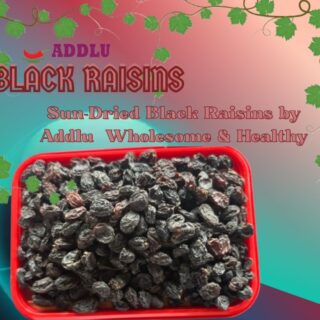
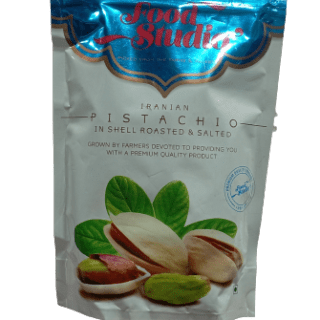

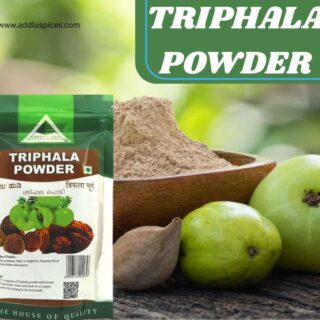
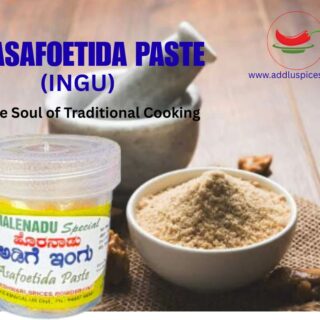
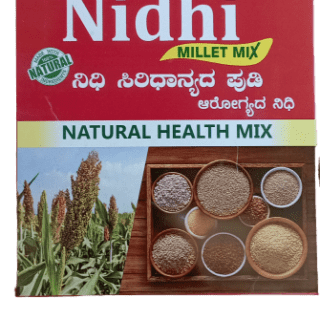
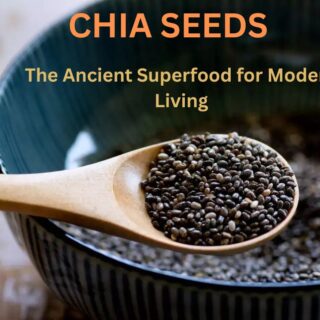
Leave a Reply